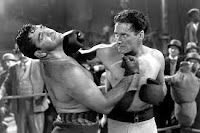Change Management vs. Change Leadership -- That's the Difference
John Kotter
I am often asked about the difference between “change management” and “change leadership,” and whether it’s just a matter of semantics. These terms are not interchangeable. The distinction between the two is actually quite significant. Change management, which is the term most everyone uses, refers to a set of basic tools or structures intended to keep any change effort under control. The goal is often to minimize the distractions and impacts of the change. Change leadership, on the other hand, concerns the driving forces, visions and processes that fuel large-scale transformation. In this video, I delve a little deeper into the differences between the two concepts, and highlight why we need more change leadership today.
http://vimeo.com/20000373
A full transcription of this video post is below:
There is a difference that is very fundamental, and it’s very big, between what is known today as “change management” and what we have been calling for some time “change leadership.” The world basically uses change management, which is a set of processes and a set of tools and a set of mechanisms that are designed to make sure that when you do try to make some changes, A, it doesn’t get out of control, and B, the number of problems associated with it—you know, rebellion among the ranks, bleeding of cash that you can’t afford–doesn’t happen. So it is a way of making a big change and keeping it, in a sense, under control. Change leadership is much more associated with putting an engine on the whole change process, and making it go faster, smarter, more efficiently. It’s more associated, therefore, with large scale changes. Change management tends to be more associated—at least, when it works well—with smaller changes.
If you look around the world right now and just talk to people, it’s not just semantics. Everybody talks about managing change and change management, because that’s what they do. If you look at all of the tools, they’re trying to push things along, but it’s trying to minimize disruptions, i.e., keep things under control. It’s trying to make sure change is done efficiently in the sense of you don’t go over budget—another control piece. It’s done with little change management groups inside corporations, sometimes external consultants that are good at that, training in change management. It’s done with task forces that are basically given the whole goal of push this thing along, but keep it under control. It’s done with various kinds of relationships that are given names like “executive sponsors,” where the executive sponsor watches over this thing to make sure that it proceeds in an orderly way.
And change leadership is just fundamentally different—it’s an engine. It’s more about urgency. It’s more about masses of people who want to make something happen. It’s more about big visions. It’s more about empowering lots and lots of people. Change leadership has the potential to get things a little bit out of control. You don’t have the same degree of making sure that everything happens in a way you want at a time you want when you have the 1,000 horsepower engine. What you want to do, of course, is have a highly skilled driver and a heck of a car, which will make sure your risks are minimum. But it is fundamentally different.
The world, as we all know right now, talks about, thinks about, and does change management. The world, as we all know, doesn’t do much change leadership, since change leadership is associated with the bigger leaps that we have to make, associated with windows of opportunity that are coming at us faster, staying open less time, bigger hazards and bullets coming at us faster, so you really have to make a larger leap at a faster speed. Change leadership is going to be the big challenge in the future, and the fact that almost nobody is very good at it is—well, it’s obviously a big deal.

.jpg)




.jpg)

















